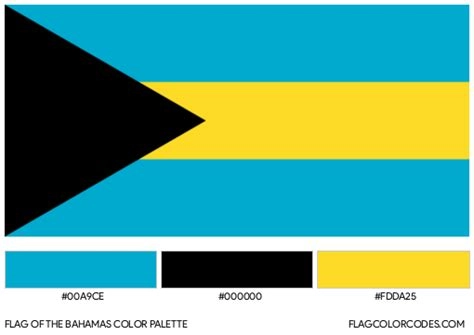
Cookies & Privacy
This website uses cookies or similar techonoglies to enhance your browsing experience and provide personalized recommendations. By contrinuing to use our website, you agree... Cookie Policy
 Bahamas Top Import
Bahamas Top Import
In 2023, The Bahamas imported around US $144 million worth of beverages—including alcoholic and non‑alcoholic drinks, spirits, and vinegar—making it among the country’s top ten import categories. These products fuel both tourism and local consumption across resorts, restaurants, retail outlets, and households.
Despite proximity to major suppliers like the United States and Mexico, CARICOM nations—renowned for rum, craft beverages, and artisanal vinegars—have a clear opportunity to serve the Bahamian market with culturally rich, regionally aligned products.
Let’s explore current sourcing, spotlight key CARICOM exporters, and develop a roadmap to tap into this bubbly segment—supported with SEO-savvy product and listing strategies for CaricomMarketplace.com.
The U.S. exports mass-market soft drinks, bottled water, beer, and distilled spirits. Mexico is a major supplier of tequila and other agave spirits consumed by Bahamian hospitality and entertainment venues.
Vodka, French wines, fine spirits, and vinegars (Champagne vinegar, aged balsamic) are imported by upscale retailers and gourmet restaurants.
Australian wines, South American liqueurs, and niche craft beers occasionally make their way into specialty stores and gourmet outlets.
But regional suppliers can reduce lead times, offer cultural connection, and match Caribbean palate preferences better than distant sources.
Home to world‑class producers like Mount Gay and Foursquare.
Barbados offers vintage rums, limited editions, and premium blends—ideal for The Bahamas’ resort and retail market.
Artisanal vinegars distilled from cane juice can appeal to culinary enthusiasts.
Blue Mountain Rum and Overproof Jamaican spirit are in demand in the UK and U.S.
Infused rums (ginger rum, coffee rum) are emerging in mixology circles—ideal for Bahamian bars.
Landscapes Distillery and Cascade Brewery produce craft gins, beers, and rums.
Inspired by tropical fruits and local botanicals, these drinks align with social and experiential tourism demands.
Guyana Demerara rum is celebrated by connoisseurs.
Grenadian distillers produce cocoa-based liqueurs, grenadine, and cocoa vinegars—unique additions to Bahamian cuisine.
Over 1 million cruise passengers visit Nassau yearly, plus luxury resorts demand high-end cocktails and Bahamian-food pairings (e.g. sorrel vinegar for dressings).
Gift sectors thrive with premium spirits and Caribbean blends.
duty-free shops attract inbound travelers with “Buy Caribbean” branding.
Increasing demand for non-alcoholic drinks, tropical juices, and gourmet vinegars fuel supermarket innovation.
Bartenders seek local-spirit alternatives for cocktails like rum-infused Mai Tais or island take on Cuba lib.
Barbados and Jamaica producers often hold FSSC22000, ISO, or EU certificates.
Alcohol permits and labelling should match Bahamas Excise Commission rules.
Utilize CARICOM Freedom of Movement and trade agreements—minimizing duties within zone.
Barrels, kegs, crates require secure, climate-controlled sea freight (~3–4 days to Nassau).
Include product name, ABV, tasting notes, age statement, and pairing ideas.
Use keywords like “Barbados single barrel rum Bahamas,” “Jamaican ginger rum export,” etc.
Sync with Bahamian hotels for joint tastings
Host virtual tours or label heritage storytelling (e.g., “300-year legacy of Barbados rum”)
Title:
“Barbados 15-Year Single Barrel Rum – Aged & Bottled for Bahamian Resorts”
Meta Description:
“Export‑ready 15‑yr aged Barbados single barrel rum. Perfect for premium Bahamian beverages menus, resorts, and duty‑free.”
💡 Marketing & Distribution Playbook
Bring samples to Nassau mixologists and executive chefs—pairing rums with Bahamian dishes.
Negotiate placement with vendors like Burt’s, Bahama Wine, and Bo’s Wine & Spirits.
Use Instagram and Facebook ads targeting “Bahamian bartenders” and “tourism buyers.” Highlight Caribbean brand heritage.
Consider pre-mix packs (rum + mango vinegar kit) for chefs, or gift-ready 50 ml sets for travelers.
Use locally recycled glass, sustainable packing, and eco-labeling.
Promote traditional distilling methods—heritage marketing resonates with Bahamian buyers.
Caribbean spirits and beverage producers are positioned to capture a slice of The Bahamas’ US $144 million market. With proximity, shared culture, and booming tourism, this segment is ripe for regional expansion. Success requires:
Compliance
Digital marketing
Cultural branding
Targeted outreach to hospitality buyers